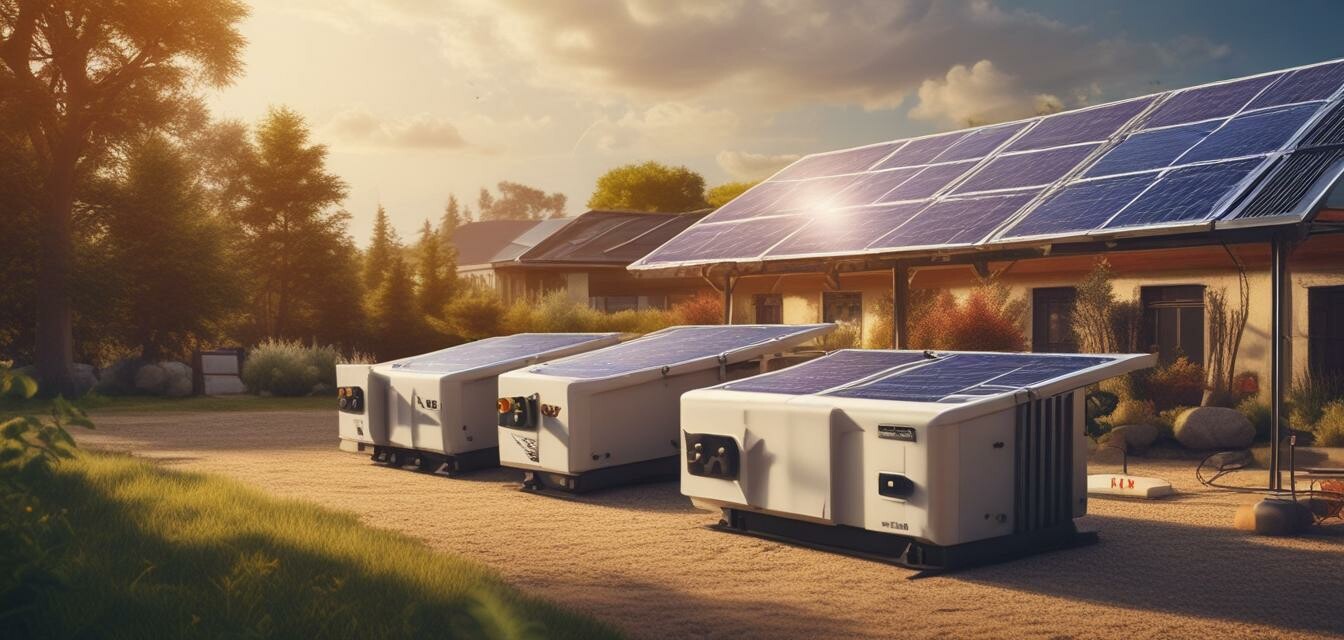
Best Voltage Converters for Off-Grid Solar Systems
Key Takeaways
- Voltage converters are essential for optimizing power from off-grid solar systems.
- Understand different types: step-up, step-down, and bi-directional converters.
- Look for efficiency ratings and safety features when choosing a converter.
- Consider compatibility with your solar panels and batteries.
- Explore options in our product category.
In an age where energy independence is paramount, optimizing your off-grid solar systems with the right voltage converters is key. These devices not only help manage the power flow but also ensure that your appliances receive the appropriate voltage. In this article, we will dive into the different types of voltage converters and factors you should consider when selecting one for your solar system.
Understanding Voltage Converters
Voltage converters are crucial in off-grid solar systems, enabling you to convert electrical voltage levels to suit the needs of your solar equipment. Specifically, they help in:
- Ensuring appliances function efficiently with the right voltage.
- Maximizing the utilization of energy produced by solar panels.
- Protecting the system from voltage spikes and surges.
Types of Voltage Converters
When it comes to selecting a voltage converter, understanding the various types available is vital. Below are the primary kinds you’ll encounter:
| Type | Description | Common Uses |
|---|---|---|
| Step-Up Converters | Converts low voltage to a higher voltage. | Used to power devices requiring higher voltage from a lower voltage source. |
| Step-Down Converters | Reduces voltage from a higher level to a lower one. | Ideal for regulating voltage for battery charging. |
| Bi-Directional Converters | Allows power flow in both directions. | Used in systems where battery charging and discharging takes place. |
Factors to Consider When Choosing a Voltage Converter
Selecting the right voltage converter for your off-grid solar system can be overwhelming. Here are key factors to take into account:
- Voltage Ratings: Ensure compatibility with both your solar panels and appliances.
- Power Capacity: Assess the total wattage of equipment you'll use.
- Efficiency: Look for converters with high-efficiency ratings to minimize energy loss.
- Safety Features: Opt for devices with protective functions against overload, overheating, and short circuits.
- Brand Reputation: Research trusted brands and their customer reviews before making a decision.
Comparison of Top Voltage Converters
Here’s a quick comparison of some popular voltage converters in the market:
| Converter | Type | Power Capacity | Efficiency | Safety Features |
|---|---|---|---|---|
| Converter A | Step-Up | 500W | 90% | Overload protection, short-circuit protection |
| Converter B | Step-Down | 600W | 92% | Thermal shutdown, surge protection |
| Converter C | Bi-Directional | 1000W | 88% | Fuse protection, input/output overload |
Where to Purchase Voltage Converters
With many options available online, it's essential to find the right platform to purchase voltage converters seamlessly. Explore our product category for a variety of choices that suit your specific off-grid needs.
Pros
- Enhances the efficiency of solar energy use.
- Protects devices from voltage fluctuations.
- Offers flexibility in device compatibility.
Cons
- Additional cost to consider in your solar setup.
- Requires understanding of voltage specifications.
- Potential for loss of energy if not efficient.
Conclusion
Voltage converters play a critical role in the functionality and efficiency of off-grid solar systems. By understanding the types of converters available and what features to look for, you can make an informed decision that enhances your energy independence. Always remember to explore detailed comparisons and seek additional information through our buying guides.
Tips for Beginners
- Start with understanding your power requirements.
- Research different brands and models thoroughly.
- Join online forums to learn from existing users’ experiences.



